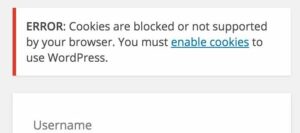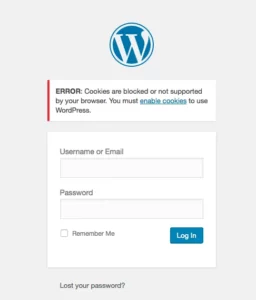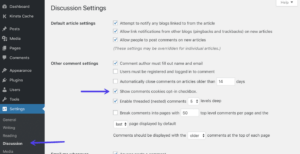How to Enable Cookies in WordPress
One of the first things you may have to do if you want to use WordPress is to enable cookies on your site. If you do not enable cookies, your website will not be able to log in. A cookie is a small text file that a website stores on the user’s computer to identify them. You should check the privacy settings of your browser to determine whether or not you’re allowed to store the cookie.
Most web browsers automatically accept cookies. To disable them on your site, go to your security settings. Your browser is likely to block cookies by default. This means that your website will display the same content no matter where a user navigates. The best way to ensure that your site works properly is to disable them for your website. But before you do this, you should know how to enable cookies in WordPress. Here are a few steps Google.

To enable cookies on your WordPress site, go to the ‘Settings’ page in your admin panel. Click on ‘Cookies’ in the left sidebar. Here, you can choose whether to allow cookies on your site or not. If you are using a third-party plugin to generate emails, make sure to disable cookies. It will slow down your website and slow down your browser. By choosing ‘allow’, you will be enabling cookies on your website for future marketing campaigns.
How Do I Fix Cookies In WordPress Site:
To disable cookies on your WordPress site, you can change the theme of your website. You can customize the cookies on your site through the Content tab. Here, you can enter a custom cookie title and message. Select a default more information page for your website. If you don’t want the cookie popup to appear in your browser, you can modify its look and position. You can also choose whether or not your website uses session or persistent cookies.

The newsletter plugin sets a cookie for subscribers to opt in to the newsletter. The action will set a cookie for your WordPress site to improve your visitors’ experience. Using a plugin that manages cookies will allow your users to shop on your website, login, and access your account information. These actions are all essential and will give your visitors the best experience. This is the reason why a WordPress site needs a cookie.
Does A WordPress Site Need A Cookie Policy:
A WordPress cookie notice will vary depending on the functions and theme of the site. These cookies will store the name and email address of a visitor to your site. This information will be updated in the cookie at a later date. Once a user has consented to this, the cookie will be stored in their browser. It is important to make sure that you have this feature enabled on your site, as it will allow your visitors to customize your website.

If you’re having problems logging in to your WordPress site, you can disable cookies in your site. This can be done by making the plugin ‘do not track users’ and ensuring that the site is secured. The plugin will then prevent the website from storing information. Moreover, if you’re using the security plugin for your website, you must disable the plugin before enabling cookies.
How Do I Add Cookies To My Website:
However, if you are still unable to resolve the problem, you can try renaming the plugin folder on your WordPress site. It will allow you to rename the files and folders that are located on your site. Then, you can go back to your site and restart your website to see if this fixed the problem. The cookies will remain stored in the directory in your server. When a user closes a popup box, it will store an additional cookie. This allows the site to keep track of products that are in a cart for the user.
Follow This Steps:
- Open the Termly cookie permission holder.
- Enter the URL of your website to scan your site for cookies.
- Create a custom cookie policy on your site.
- Choose your policy format: HTML, URL, or captions.
- You can handle the policy yourself or manage it using Termly.
Lastly, you should enable cookies on your WordPress site to prevent them from being deleted by third-party plugins. In addition to this, you should make sure that you disable all third-party plugins that can use your WordPress website. You should also be aware of any new laws and regulations that govern privacy online. You should always make sure to check what cookies are in your website so that you can prevent any unwanted activities.


